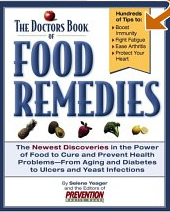Health Benefits of Organic, Raw Chocolate
Nature's delicious superfood with remarkable health properties

Chocolate is a healthy superfood that is bursting with antioxidants. Additionally, it benefits your heart, helps increase alertness and improves mood - all with very little caffeine. However, to reap the health benefits, you have to choose the right chocolate: chocolate that is pure, 100% organically grown, and minimally processed.
🍫 Rich in Nutrients
In its natural state chocolate is bursting with antioxidants to fight free radicals - even more than fruit, vegetables, tea or wine!
Chocolate supplies micronutrients, such as potassium, zinc, magnesium and iron, and is one of the richest food sources of antioxidants that neutralize free radicals--rogue oxygen molecules that can accelerate aging and cause numerous health problems.
❤️ Proven Health Benefits
💓 Lowers Blood Pressure
Chocolate aids in relaxation of blood vessels so your blood easily travels where it needs to.
University of Cologne Study:
- • 13 participants with mild high blood pressure
- • Dark chocolate group: 5-point systolic drop
- • 2-point diastolic drop
- • White chocolate showed no effect
💖 Heart Protection
Flavonol-rich cocoa acts similarly to low-dose aspirin in promoting healthy blood flow.
Research Findings:
- • Prevents blood platelets from clotting
- • Reduces stroke and heart attack risk
- • Similar effects to 81mg aspirin dose
- • Heart attack survivors lived longer
🧠 Increases Brain Power
Flavonols in dark chocolate increase cerebral blood flow, which may trigger the creation of new blood vessels and brain cells.
Cognitive Benefits:
- • Increased cerebral blood flow
- • New blood vessel creation
- • Better cognitive test performance
- • Enhanced brain cell development
🦷 Saves Your Teeth!
Chocolate has a cavity-fighting compound called theobromine that may be as effective as fluoride at hardening tooth enamel.
Note: Commercial chocolate's sugar content can cause tooth decay - choose raw, unsweetened varieties.
🛡️ Antioxidant Powerhouse
Cornell University food scientists found that cocoa has nearly twice the antioxidants of red wine and up to three times those found in green tea.
Longevity Research:
Harvard School of Public Health found that those who eat chocolate and sweets up to three times each month live almost a year longer than those who eat too much or avoid sweets altogether.
✅ Choosing the Right Chocolate
Smart Choices
🍫 100% Organic Dark Chocolate
Rich, pure, minimally processed
🌱 Raw Organic Cocoa Powder
Highest flavonoid content
📏 Moderate Portions
Small amounts for maximum benefit
Important Notes
Dark chocolate is higher in flavonoids than milk chocolate. Processing removes most flavonoids from powder and syrups.
Milk interferes with absorption of antioxidants from chocolate - choose dark chocolate instead.
🍽️ Healthy Recipe Substitution
To substitute 1 oz unsweetened chocolate: Use 3 Tbsp dry cocoa + 2 Tbsp sugar + 1 Tbsp vegetable oil
⚠️ Important Warnings & Downsides
🐕 Toxic to Pets!
Chocolate is extremely dangerous for pets! Chocolate contains high levels of theobromine, which pets cannot metabolize like humans.
Most toxic: Baker's chocolate and dark chocolate. The more raw chocolate content, the more toxic to pets.
⚡ Lead Contamination
Cocoa products can have high lead levels, mostly from contamination during shipping and manufacturing - not from the beans themselves.
🧠 Gut & Mood Issues
"Exorphins" in chocolate can cause gut problems and psychological effects in sensitive individuals.
🤕 Migraine Trigger
Chocolate can trigger migraine attacks in susceptible individuals.
⚖️ Weight Gain
Too much chocolate will cause weight gain! Moderation is key for health benefits.
Medical & Legal Disclaimer: The above provides a general overview and may not apply to everyone. Any treatment protocol should be discussed with a qualified healthcare practitioner. GreenAndHealthy.Info strives to maintain accurate information; however, mistakes do happen.